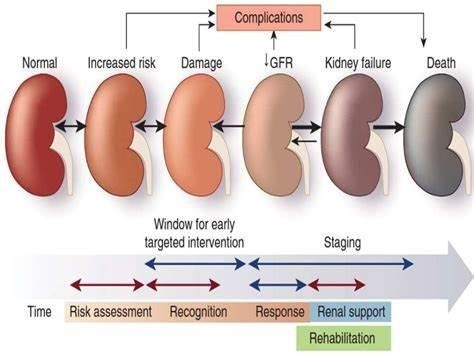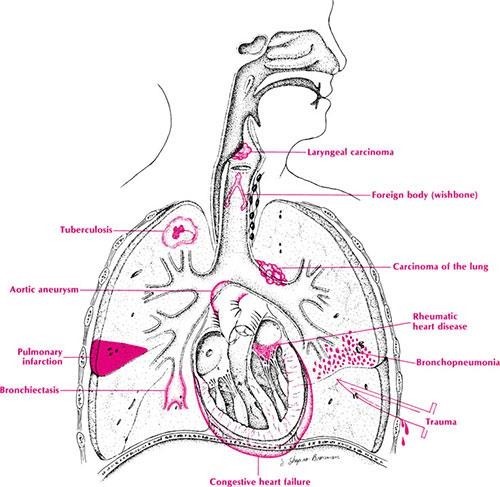After reviewing the morning laboratory findings for four clients, which client should the nurse follow up with first? Reference Range:
International Normalized Ratio [0.8 to 1.1]
Blood Glucose 74 to 106 mg/dL (4.1 to 5.9 mmol/L)]
Potassium [3.5 to 5 mEq/L (3.5 to 5 mmol/L)]
Brain Natriuretic Peptide (BNP) [less than 100 pg/mL (less than 100 ng/L)]
The brain natriuretic peptide (BNP) assay for a client with shortness of breath after a myocardial infarction (MI) increases to 1000 pg/mL (1000 ng/L).
The international normalized ratio (INR) for a client who is receiving warfarin therapy increases to 2.5.
The serum glucose level for a client receiving corticosteroids increases to 150 mg/dL (8.3 mmol/L).
The potassium level for a client scheduled for renal dialysis increases to 5 mEq/L(5 mmol/L).
The Correct Answer is A
Choice A Reason: This client has a very high BNP level, which indicates severe heart failure and fluid overload. The nurse should follow up with this client first, as they may need urgent interventions such as oxygen therapy, diuretics, and vasodilators.
Choice B Reason: This client has an INR within the therapeutic range for warfarin therapy, which is usually between 2 and 3. The nurse should monitor this client for signs of bleeding or clotting, but they do not require immediate follow-up.
Choice C Reason: This client has a mildly elevated glucose level, which may be caused by the corticosteroids that
increase blood sugar. The nurse should check the client's blood glucose regularly and administer insulin as ordered, but they do not require immediate follow-up.
Choice D Reason: This client has a normal potassium level, which is within the reference range of 3.5 to 5 mEq/L. The nurse should ensure that the client is ready for dialysis and avoid foods high in potassium, but they do not require immediate follow-up.
Nursing Test Bank
Naxlex Comprehensive Predictor Exams
Related Questions
Correct Answer is B
Explanation
A) This client has a mild fever, which may indicate an infection or inflammation. This is a potential complication of enteral feedings, but it is not the most urgent situation. The nurse should monitor the client's vital signs, assess the feeding tube site, and notify the provider if the fever persists or worsens.
B) This client has signs of uremic encephalopathy, which is a life-threatening condition caused by the accumulation of toxins in the brain due to impaired renal function. The nurse should intervene immediately to prevent further
neurological damage and possible coma or death. The nurse should assess the client's level of consciousness, check the blood pressure and urine output, and prepare to administer dialysis or other treatments as ordered by the provider.
C) This client has heat stroke, which is a serious condition that can lead to dehydration, electrolyte imbalance, and organ damage. However, the client is receiving a normal saline IV fluid bolus, which is an appropriate intervention to restore fluid volume and correct sodium levels. The nurse should continue to monitor the client's vital signs, skin
temperature, and urine output, and watch for signs of fluid overload or cerebral edema.
D) This client has hyperemesis gravidarum, which is a severe form of nausea and vomiting during pregnancy that can lead to dehydration, malnutrition, and electrolyte imbalance. However, the client is receiving an infusion of Ringer's Lactate, which is an isotonic solution that can replenish fluid and electrolyte losses. The nurse should continue to monitor the client's vital signs, weight, and intake and output, and administer antiemetics or other medications as ordered by the provider.

Correct Answer is B
Explanation
A) This intervention is not appropriate because it violates the client's privacy and confidentiality. The health department does not need to be notified of the client's condition, as breast cancer is not a communicable disease or a public health threat. The nurse should respect the client's wishes and only share information with authorized persons or agencies.
B) This intervention is appropriate because it respects the client's autonomy and encourages informed decision-making. The nurse should advise the client to consider the benefits and risks of disclosing or withholding the diagnosis from the family, and how it may affect their relationships and support systems. The nurse should also provide relevant information and resources to help the client make an informed choice.
C) This intervention is not appropriate because it contradicts the client's decision and may cause confusion or distress for the family. The nurse should not suggest genetic screening to the family without the client's consent, as this may imply that they are at risk of developing breast cancer or other genetic disorders. The nurse should also avoid giving unsolicited advice or opinions that may interfere with the client's autonomy.
D) This intervention is not appropriate because it imposes the nurse's values and beliefs on the client. The nurse should not explain that the family has a right to know of potential health problems, as this may imply that the client is wrong or selfish for withholding the diagnosis. The nurse should acknowledge and respect the client's perspective and preferences, and support them in coping with their condition.

Whether you are a student looking to ace your exams or a practicing nurse seeking to enhance your expertise , our nursing education contents will empower you with the confidence and competence to make a difference in the lives of patients and become a respected leader in the healthcare field.
Visit Naxlex, invest in your future and unlock endless possibilities with our unparalleled nursing education contents today
Report Wrong Answer on the Current Question
Do you disagree with the answer? If yes, what is your expected answer? Explain.
Kindly be descriptive with the issue you are facing.
